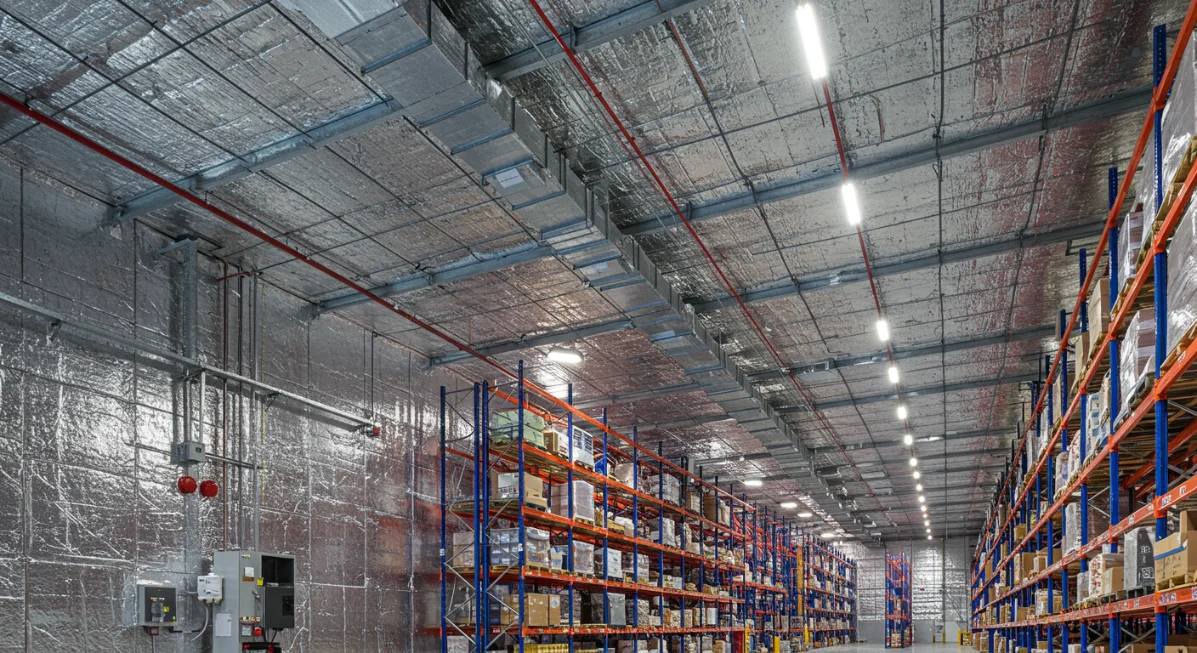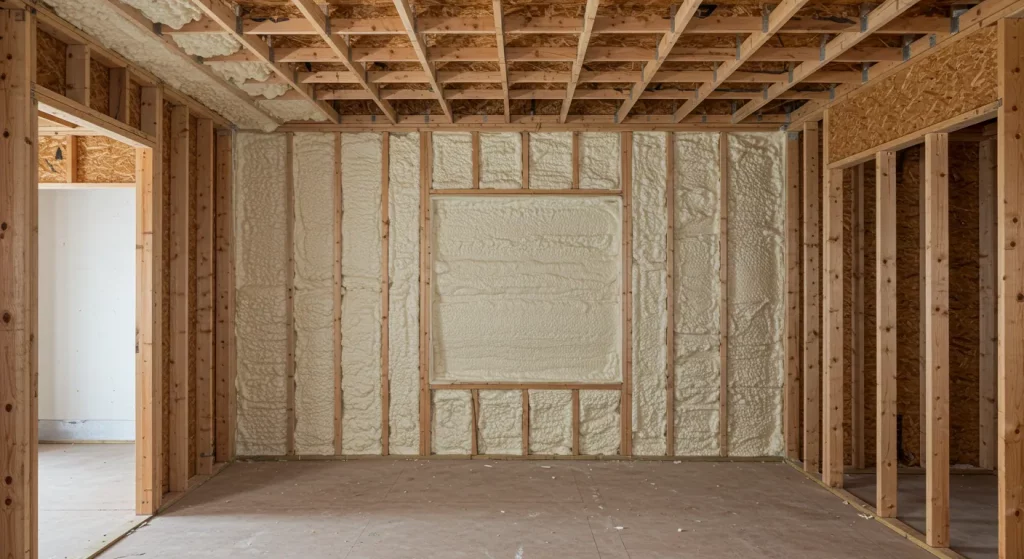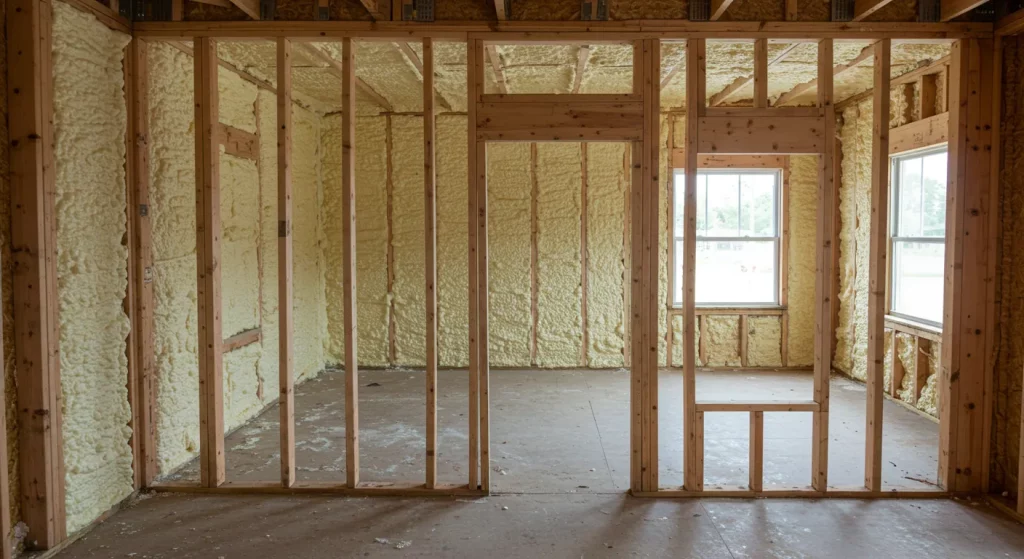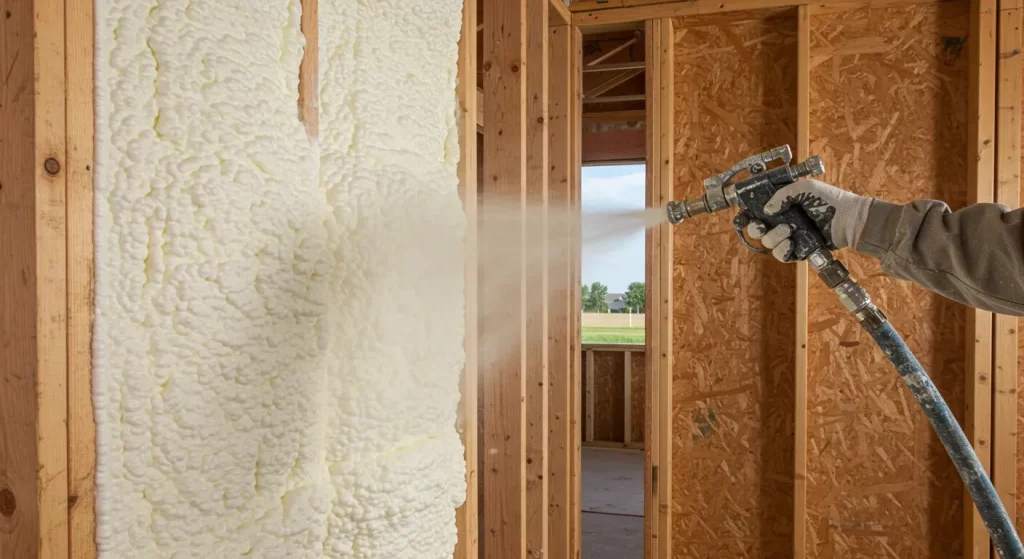Temperature-controlled warehouses require specialized insulation to maintain strict thermal conditions, prevent energy loss, and protect stored goods from temperature fluctuations. Without adequate insulation, these facilities experience inconsistent internal temperatures, which can lead to product spoilage, increased energy consumption, and equipment strain.
Specialized insulation solutions, particularly spray foam insulation, help manage thermal performance by creating an air seal that limits conductive, convective, and radiant heat transfer. This insulation strategy ensures that heating and cooling systems operate efficiently, meeting the temperature requirements of sensitive products like pharmaceuticals, produce, and chemicals. Raleigh Excel Spray Foam Insulation brings first-hand experience from warehouse installations across North Carolina, accounting for regional climate variables such as high summer humidity and winter cold snaps.
Core Performance Comparison of Insulation Types for Temperature-Controlled Warehouses
| Insulation Type | Thermal Resistance (R-Value/inch) | Moisture Resistance | Air Seal Quality | Typical Application Areas | Initial Cost | Longevity |
|---|---|---|---|---|---|---|
| Closed-Cell Spray Foam | 6.5 – 7.0 | High | Excellent | Walls, roofs, floors | High | 30+ years |
| Open-Cell Spray Foam | 3.5 – 4.0 | Moderate | Good | Interior walls, ceilings | Moderate | 20+ years |
| Fiberglass Batts | 2.9 – 3.8 | Low | Poor | Non-critical interior spaces | Low | 15-20 years |
| Rigid Foam Board | 4.5 – 5.0 | High | Moderate | Flat roofs, walls | Moderate | 20-30 years |
Regional Climate Challenges Impacting Insulation in North Carolina
In Raleigh and surrounding regions, summer temperatures regularly exceed 90°F with high humidity, while winter lows can drop below freezing. These extremes demand insulation materials with both thermal stability and moisture control. Closed-cell spray foam performs well under these conditions due to its vapor resistance and structural rigidity, reducing the risk of condensation and mold growth in high-humidity environments.
Bonus Tip
Installers should assess dew point placement during application, especially for roof insulation, to avoid trapped moisture between insulation layers.
Technical Specifications for Warehouse Insulation
| Feature | Closed-Cell Spray Foam | Open-Cell Spray Foam | Fiberglass Batts | Rigid Foam Board |
|---|---|---|---|---|
| Vapor Permeability (perm) | <1 (low permeability) | 10+ (high) | >20 (very high) | 1-3 (low) |
| Application Thickness | 2″ – 4″ typical | 3″ – 5″ typical | 6″ – 12″ typical | 2″ – 4″ typical |
| Compressive Strength (psi) | 25+ | <5 | N/A | 15 – 25 |
| Sound Attenuation Rating | Moderate | High | Moderate | Low |
Market Data Supporting Specialized Insulation
- The U.S. Department of Energy estimates that buildings lose up to 40% of energy through uninsulated or poorly insulated surfaces (Source: energy.gov).
- Cold chain logistics in the U.S. is projected to grow at 17.9% CAGR through 2029, increasing demand for consistent warehouse temperature control (Source: Statista, 2024).
- Spray foam insulation reduces HVAC load by up to 20% in large storage facilities (Source: Building Science Corporation, 2023).
Things to Consider Before Making a Decision
- Insulation Objective: Determine whether the goal is to maintain sub-zero conditions, protect against heat, or both.
- Building Envelope Integrity: Inspect for gaps, thermal bridges, and unsealed penetrations.
- HVAC System Compatibility: Confirm insulation materials do not interfere with airflow or vent placements.
- Local Building Codes: Ensure compliance with Raleigh’s commercial insulation standards and fire safety codes.
- Expansion Plans: Choose materials that are easy to modify or integrate with future building changes.
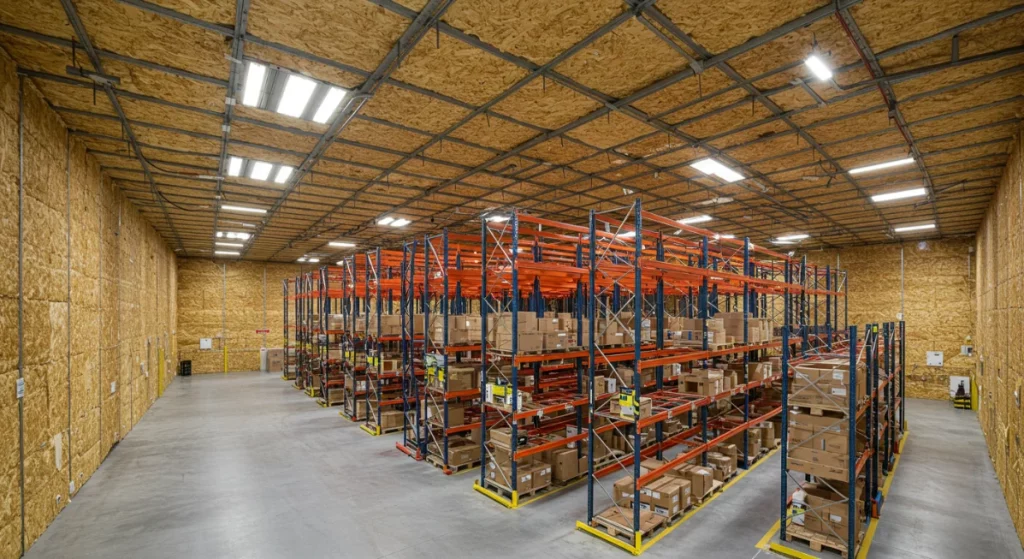
Bonus Tip
Coordinate installation schedules to minimize disruption to ongoing operations. Night or weekend installations are often preferred in operational warehouses.
Closely Related Services Available from Raleigh Excel Spray Foam Insulation
- Closed-Cell Spray Foam Insulation: Delivers high R-values and moisture resistance, ideal for temperature-controlled storage environments.
- Roof Insulation: Prevents heat ingress from sun exposure, protecting internal climate regulation.
- Warehouse Insulation: Comprehensive coverage tailored to structural layouts and thermal needs.
- Floor Insulation: Reduces thermal bridging from ground surfaces and improves overall efficiency.
Common Questions Before Choosing Insulation
How quickly can insulation be installed in an operational warehouse?
Installations can be phased to accommodate business hours. Closed-cell foam sets within minutes and is walkable after curing.
What type of insulation holds up best in high-humidity regions?
Closed-cell spray foam outperforms others due to its vapor barrier properties and durability.
Can insulation upgrades qualify for energy efficiency rebates?
Yes, local and federal programs offer incentives. Always consult with a licensed contractor for updated eligibility.
What signs indicate that existing insulation is underperforming?
Rising utility bills, temperature swings inside storage areas, and visible moisture or mold are common indicators.
Get Expert Insulation Guidance
For specialized insulation suited to temperature-controlled warehouses in North Carolina, contact:
Raleigh Excel Spray Foam Insulation Email: [email protected] Phone: (919) 301-9435
Discuss your building’s needs with professionals experienced in regional climate performance and commercial insulation standards.
Frequently Asked Questions
What maintenance does spray foam insulation require?
Minimal. Regular inspections for physical damage or penetration points are sufficient. Repairs can be done locally without full replacement.
Can closed-cell spray foam help with pest control?
Yes. Its airtight seal reduces entry points for rodents and insects compared to batt insulation.
Is there a risk of over-insulating a warehouse?
Yes. Excessive insulation without adequate ventilation can trap moisture and reduce air quality. Design must balance insulation and airflow.
How long does spray foam insulation last in commercial settings?
Typically 30 years or more when properly installed and maintained.
Are there fire safety considerations with spray foam?
Yes. Spray foam must be paired with approved thermal or ignition barriers to meet commercial fire codes.




